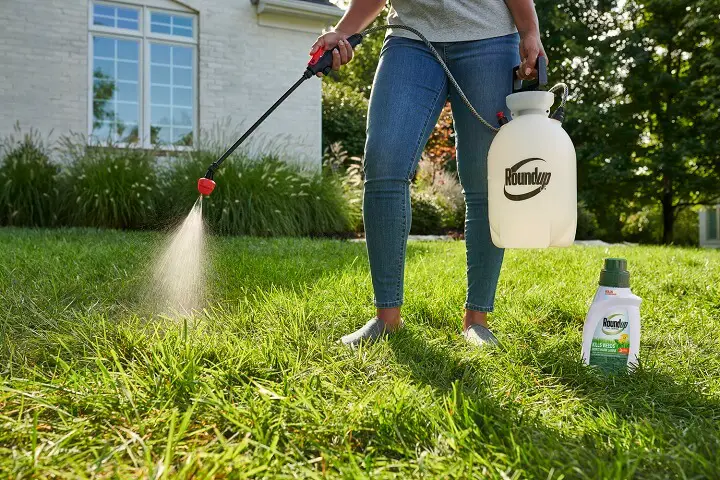Monsanto, the manufacturer of certain Roundup®, Ace®, and HDX® weed and grass killer products has agreed to resolve claims of breach-of-warranty and false advertising with a $45 million settlement.
Settlement Website: WeedKillerAdSettlement.com
Objection Deadline: 12/05/2022
Exclusion Deadline: 10/19/2022
Claim Form: https://weedkilleradclaims.pnclassaction.com
Deadline For Submitting Claim Form: 10/19/2022
Final Hearing Date: 01/12/2023
Settlement Amount: $45 million
Potential Claim Amount: Class members can claim approximately 20% of the weighted average retail price of products purchased during the relevant class period. Per unit payment will range from $0.50 to $33 according to the price of the product(s) bought between two to eleven units without proof of purchase and depending on the state where it was purchased.
Proof Of Purchase: Consumer claims can be made without proof of purchase except for three of the largest and most concentrated products. However, they are limited to one unit per year within the class period. For making claims against an unlimited number of products you will have to submit a valid proof of purchase identifying both the product and the quantity purchased.
Monsanto has come under the fire for falsely advertising and promoting its products Roundup®, Ace®, and HDX® weed and grass killer without disclosing that glyphosate, the active ingredient can cause cancer and other adverse health effects. The plaintiffs have alleged that Monsanto illegally advertised, marketed, and sold the products without disclosing the risk of cancer and other health adversities. This caused the consumers to pay more for the products than they would have if they knew about the risk. Consumers argue that glyphosate, a key ingredient in Roundup is carcinogenic. The settlement terms will benefit anyone in the United States who purchased any size or variety of the following products during the respective class period other than for resale or distribution:
- Roundup® Ready-to-Use Weed & Grass Killer (all applicators)
- Roundup® Ready-to-Use Weed & Grass Killer Plus (all applicators)
- Roundup® Weed & Grass Killer Concentrate Plus
- Roundup® Weed & Grass Killer Super Concentrate
- Roundup® Ready-to-Use Poison Ivy Plus Tough Brush Killer
- Roundup® Ready-to-Use Wild Blackberry Plus Vine and Brush Killer
- Roundup® Concentrate Poison Ivy Plus Tough Brush Killer
- Roundup® Concentrate Wild Blackberry Plus Vine and Brush Killer
- Roundup® Ready-to-Use Extended Control Weed & Grass Killer Plus Weed Preventer
- Roundup® Concentrate Extended Control Weed & Grass Killer Plus Weed Preventer
- Roundup® Ready-to-Use Max Control 365
- Roundup® Concentrate Max Control 365
- Roundup® Weed & Grass Killer Sure Shot Foam
- Roundup® Precision Gel Weed & Grass Killer
- Roundup® Pro Concentrate (2.5-gallon size)
- HDX® Weed & Grass Killer Ready-to-Use
- HDX® Weed & Grass Killer Concentrate
- Ace® Ready-to-Use Weed & Grass Killer
- Ace® Weed & Grass Killer Concentrate
Monsanto has denied the group allegations and has argued that the state-law claims are preempted by federal law. A spokesman of Monsanto said that the U.S Environmental Protection Agency has concluded that glyphosate isn’t carcinogenic which would make a cancer warning label on glyphosate-based products illegal. Since the conclusion of all expert regulators around the globe and the weight of scientific evidence continue to support the safety of glyphosate-based herbicides, the decision of Monsanto to resolve all claims brought against them is not out of safety concerns.
Rather, the settlement brings only consumer fraud, false advertising, breach of warranty, and other economic-loss claims under its purview. It doesn’t resolve or release any medical monitoring or personal injury claims. If the class members currently have or later develop cancer or other injury or illness from exposure to the products, they will retain their right to sue even after participating in the settlement. Monsanto was ordered to pay $87 million to a couple who claimed they got cancer after using Roundup for more than 30 years to kill weeds on their properties. Monsanto appealed to overturn the award to Alberta and Alva Pilliod which was rejected by the California appeals court. A jury concluded in May 2019 that Roundup was a substantial factor in causing non-Hodgkin’s lymphoma in the Pilliods.
The class period will depend on the state where each class member made their purchases. You can refer to the list of class periods from the settlement website. The grass and weed killer products were sold at retailers like Walmart, Home Depot, Target, Amazon, Lowe’s, and others. Monetary relief will be offered to the class in an amount not less than $23 million and not more than $45 million.
If the total claims submitted by authorized claimants are more than the ceiling amount after deducting all other expenses, the amount refunded to authorized claimants will be reduced on a pro-rata basis. Similarly, if total claims submitted are less than the base amount of $23 million after deducting all other expenses, the amount refunded to authorized claimants will be increased on a pro-rata basis. If the total amount paid by Monsanto falls below $23 million due to uncashed cheques, and if a further distribution is economically feasible, then the amount will be distributed to class members on a pro-rata basis. Otherwise, that amount will be donated to the National Consumer Law Center.

